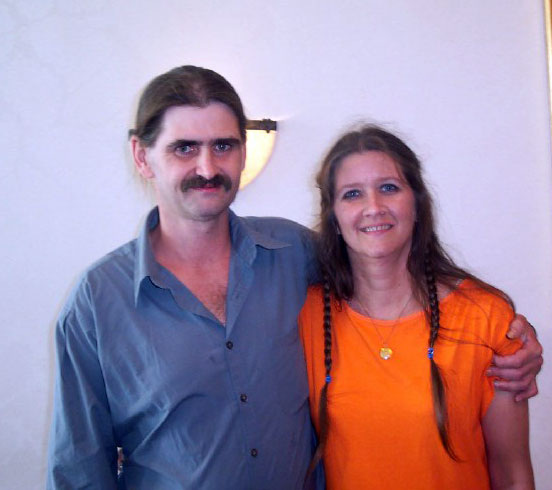Last year a few people attended our session. This year the classroom was filled, including standing room! The session was videotaped so as soon as
it’s available we will post it!
http://www.upc-online.org/alerts/140516_why_does_the_left_ignore_animal_issues.html
“Kill floor” worker, Virgil Butler, went from alienation from the chickens (and his own feelings) to acknowledging the empathy he
felt but was afraid to admit or reveal.
Virgil documented the horrific chicken and worker abuse – workers being abused and abusive – that he saw every night at the Tyson
chicken slaughter plant in Grannis, Arkansas, from 1997 to 2002. He changed his life completely, speaking out boldly at considerable risk to
himself in a region dominated by Tyson Foods.
Interviewer:
One of the most powerful things you describe in your writing is making eye contact with the chickens on the slaughter line and seeing their terror.
Was there a time when you didn’t “see” them, but then you did?
Virgil Butler:
I felt that connection from the first night I killed. I just suppressed how I felt because it would have been an unpopular opinion among the other
workers. What happened was that this feeling just kept adding up and getting worse. . . .

Photo By: Karen Davis
|
When Virgil met Laura Alexander, he saw his work through her eyes. “My attitude [after meeting Laura] changed in such a way as to make me
not want to go to work anymore.”
Laura Alexander:
I asked Virgil to take me back to the hanging cage where he worked so I could see for myself what it looked like. I had prepared myself to feel
disgusted, sad, and uncomfortable, but nothing could have prepared me for the way I felt when I saw it. It was like this wave – this wall
– of negative energy hitting me in the face when we opened the door . . . that feeling you get in places like hospitals and jails, where
there is suffering and death, dread and fear. Well, take that feeling and magnify it by at least 10 and you will have maybe an inkling of
what I felt at the door of that room that day. I couldn’t leave fast enough.
Interviewer:
Do you think from your perception that the chickens have a sense of what is going to happen to them?
Virgil Butler:
Yes, they try everything in their power to get away from the machine and to get away from you – even the ones that are stunned into
immobility. If these people are trying to say, “Because this chicken is stunned, it doesn’t know what’s going on or it
doesn’t feel what’s going on,” they are lying to you. I stood there on the kill floor and watched it. The chickens will look at
you. They try to hide their head from you by sticking it under the wing of the chicken next to them on the slaughter line. They’ll open up
their mouths; they’ll try to squawk. They’ll get as mobile as they can, trying to get away. Of course, they have been stunned so their
muscles don’t work, but their eyes do and you can tell by them looking at you that they are scared to death.
Interviewer:
So, do you eat chicken anymore?
Virgil Butler:
No, I haven’t eaten chicken in a long time.
Virgil Butler & Laura Alexander:
We just couldn’t look at a piece of meat anymore without seeing the sad, tortured face that was attached to it sometime in the past. If
people can start to realize they are being lied to by the poultry industry and the government, and that the horrible things we’ve described
are not isolated in any way, we hope people will question the effect that their actions have on the world around them, especially on the innocent
creatures who share it with us. We hope people will join us in changing their lives.
Virgil Butler died in his pick-up truck in Arkansas December 15, 2006.
This presentation is inspired by Virgil’s courage and dedicated to his memory, with profound gratitude to Laura Alexander who rescued him
with her love.